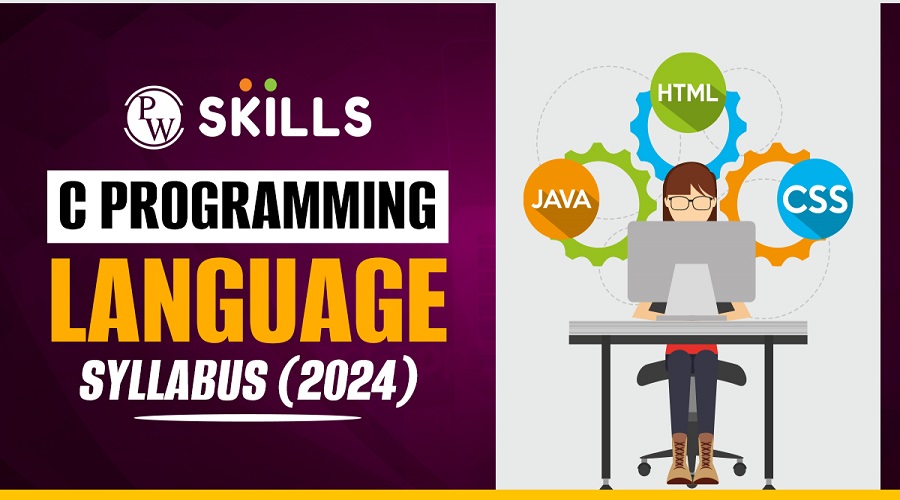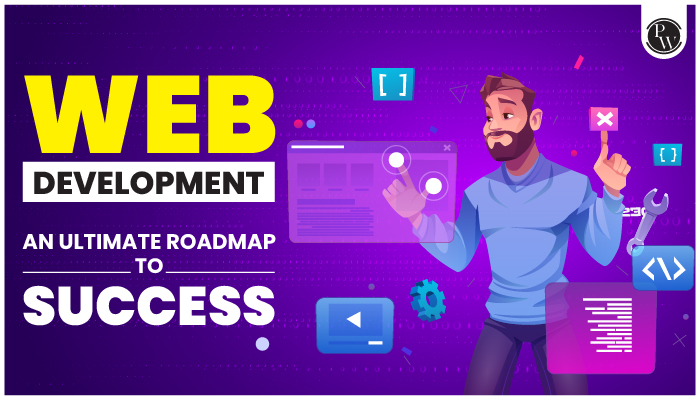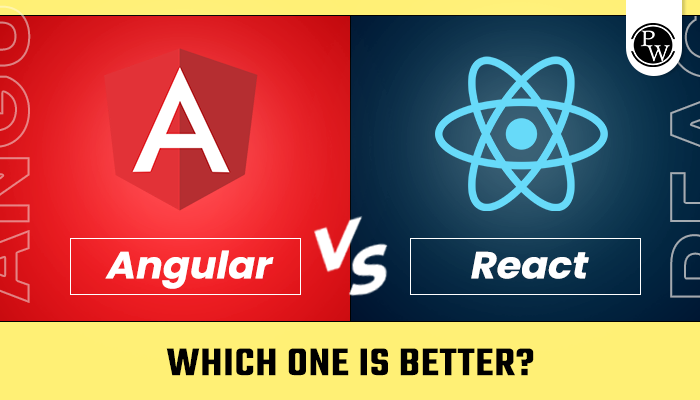C programming syllabus is your go-to source to excel C programming concepts. Learners must download C programming syllabus PDF to get instant access and start learning today!
C Programming Syllabus: C programming language syllabus for 2024 is filled with exciting new updates and advancements that will surely elevate your coding skills to the next level. From its rich history to its vast applications in various industries, it is clear that learning C is essential for any aspiring programmer. However, mastering C takes time and effort, which is why we would like to recommend the C++ with DSA course by Physics Wallah.
So we urge each and every one of you, my dear readers, to take up the C++ with DSA course by Physics Wallah. This course not only covers the entire 2024 syllabus but also provides valuable insights and tips from seasoned professionals in the field.
And as a token of gratitude for being loyal readers, be sure to use the code “READER” at checkout to avail a special discount on this amazing course. Trust me when we say this, investing in your education is investing in your future self and there’s no better time than now. Start your journey today with us at Physics Wallah!
C Programming Language Syllabus Overview
Learning any coding language takes dedication and practice. So don’t be discouraged if you encounter challenges along the way.
And remember, never stop learning – technology is constantly evolving and there will always be new things to discover with C. So go forth with confidence and tackle the C programming language head-on. Who knows, maybe one day you’ll look back at this syllabus as the starting point of an incredible career in coding? So let’s get started on our C journey together! We will discuss the C programming language syllabus in detail in the sections below!
What Subject is the C Language?
The C language is primarily categorized under computer science and programming subjects. Specifically, it falls under the domain of programming languages and software development.
C Language Syllabus for Beginners
Below is a detailed syllabus for beginners who are looking to learn the C programming language:
1) Introduction to C Programming
History and Evolution of C:
- Origin and development of the C programming language.
- Significance and applications of C in the computing world.
Features of C:
- Basic features and characteristics of C.
- Advantages and limitations of using C for programming.
Setting Up the C Environment:
- Installing and configuring the C compiler (e.g., GCC).
- Setting up an Integrated Development Environment (IDE) for C programming.
2) Fundamentals of C Programming
Basic Structure of a C Program:
- Understanding the structure of a C program.
- Components: Header files, main function, variables, and statements.
Data Types and Variables:
- Fundamental data types: int, float, char, double.
- Variable declaration, initialization, and assignment.
Input and Output Operations:
- Using printf() and scanf() for standard input and output.
- Formatting output using format specifiers.
3) Operators and Expressions in C
Arithmetic Operators:
- Addition, subtraction, multiplication, division, modulus.
Relational and Logical Operators:
- Comparison operators: ==, !=, <, >, <=, >=.
- Logical operators: &&, ||, !.
Assignment and Increment/Decrement Operators:
- Understanding the assignment (=) operator.
- Increment (++) and decrement (–) operators.
4) Control Flow Statements in C
Decision-making Statements:
- if, if-else, nested if-else.
- switch case statements.
Looping Statements:
- while loop, do-while loop, for loop.
- Loop control statements: break, continue.
5) Functions and Modular Programming
Introduction to Functions:
- Defining and calling functions in C.
- Function prototypes and declarations.
Passing Arguments to Functions:
- Call by value: Passing values to functions.
- Call by reference: Passing addresses to functions using pointers.
User-defined Functions:
- Creating custom functions to perform specific tasks.
- Understanding function return types and values.
6) Arrays and Strings in C
Arrays:
- Understanding one-dimensional and multi-dimensional arrays.
- Array initialization, accessing elements, and operations.
Strings:
- Introduction to strings in C.
- String functions and operations: strlen(), strcpy(), strcat(), strcmp().
7) File Handling in C (Basic Overview)
File Operations:
- Understanding file handling concepts.
- Basic file operations: Reading from and writing to files.
This beginner-level syllabus for C programming provides a comprehensive introduction to the fundamental concepts, principles, and techniques of the C language, designed to equip learners with essential skills to start their journey in C programming effectively.
Also Read: Web Development Roadmap 2024
C Language Syllabus for BCA
Here is the C language syllabus for BCA:
Unit 1: Introduction to C Language
C Language Fundamentals:
- History and Evolution: Understand the origin, development, and significance of the C programming language.
- Features and Characteristics: Explore the key features, advantages, and applications of C.
- Structure of C Program: Learn the basic structure, components, and syntax of a C program.
Unit 2: Operators in C
- Arithmetic Operators: Addition, subtraction, multiplication, division, modulus operations.
- Relational Operators: Comparison operations like equal to, not equal to, less than, greater than, etc.
- Logical Operators: Logical AND, logical OR, logical NOT operations.
- Bitwise Operators: Bitwise AND, bitwise OR, bitwise XOR, bitwise NOT operations.
- Assignment Operators: Assignment, compound assignment operations.
- Miscellaneous Operators: Ternary conditional operator, sizeof operator, comma operator.
Unit 3: Control Structures in C
Conditional Statements:
- if-else Statements: Implement conditional logic using if-else statements in C.
- Nested if-else: Understand and implement nested conditional statements for complex decision-making.
Switch Case Statements:
- Nested Switch Case: Learn to use nested switch-case statements for multiple condition evaluations.
Unit 4: Problem-solving, Algorithms, and Flowcharts
- Introduction to Problem-solving: Understand the problem-solving approach using algorithms, flowcharts, and pseudocode.
- Divide & Conquer: Learn the divide and conquer strategy to solve complex problems by breaking them into smaller sub-problems.
- Time Complexity: Explore the concept of time complexity to analyze and evaluate algorithm efficiency.
- Algorithms: Study various algorithms, their design, analysis, and implementation in C programming.
- Flowchart and Pseudocode: Design flowcharts and write pseudocode to represent algorithmic solutions systematically.
Unit 5: Simple Arithmetic Problems in C
- Simple Arithmetic Operations: Solve basic arithmetic problems using C programming, focusing on addition, subtraction, multiplication, division, and modulus operations.
Unit 6: Functions in C
Basics of Functions: Understand the concept of functions, their definition, declaration, and usage in C programming.
Parameter Passing Techniques:
- Call by Value: Learn to pass function arguments by value, understanding parameter copies and modifications.
- Call by Reference: Explore passing function arguments by reference using pointers, enabling direct memory access and modifications.
Scope Rules in C: Study variable scope and storage classes in C programming, including local, global, static, and external variables, understanding their visibility, lifetime, and accessibility.
Also Read: Top 20 Best Programming Languages To Learn in 2024
C Language Syllabus for BTech 1st Year
Let’s delve deeper into each topic mentioned in the syllabus for the “Computer System and Programming in C” course for BTech First Year students.
Unit 1: Basics of Computer and Operating Systems
Basics of Computer:
- Introduction to Analog & Digital Computers
- Basic Functions & Applications of Computers
- Components of Computers
- Generations of Computers
- Classification of Computers
Introduction to Operating Systems:
- DOS, Windows, Linux, Android
Number System:
- Binary, Octal, Hexadecimal Number Systems
Unit 2: Fundamentals of C Programming
Basics of Programming:
- Approaches to Problem Solving
- Concept of Algorithm and Flowcharts
- Types of Computer Languages
- Assembler, Compiler, Loader, Linker
Fundamental Data Types:
- Character, Integer, Floating Point Types
Storage Classes:
- Automatic, Register, Static, External
Operators in C:
- Arithmetic, Relational, Logical, Bitwise Operators
Basics of C Programming:
- Structure of C Program, Standard I/O
Unit 3: Control Structures and Functions in C
Conditional Program Execution:
- if, switch Statements, Loops
- break, continue Statements
Functions in C:
- Introduction, Types, Arrays in Functions
Unit 4: Arrays, Structures, and Enumerated Data Types
Arrays, Structures, Union, Enumerated Data Types:
- Arrays
- Structures, Union, Enumerated Data Types
Unit 5: Pointers in C
- Introduction, Declaration, Applications.
Unit 6: File Handling and Pre-processors in C
File Handling, Pre-processors, Macros:
- File Handling
- Pre-processors, Macros, Conditional Compilation
This detailed explanation provides a comprehensive understanding of each topic in the “Computer System and Programming in C syllabus for BTech First Year students, focusing on theoretical concepts, practical applications, and programming skills essential for computers.
Also Read: Full Stack Developer Roadmap (2024)
C Language Syllabus for Engineering
Understanding the C language syllabus for engineering is important. Below table shows the C language syllabus for engineering:
| C Language Syllabus for Engineering | |||
| S.No. | Module | Topics Covered | Description |
| 1 | Introduction to C | History and Evolution of C | Understanding the origin and significance of C |
| Characteristics and Features of C | Exploring key features, advantages, and applications | ||
| Basics of Programming | Overview of programming concepts and paradigms | ||
| 2 | Basic Structure & Syntax | Structure of a C Program | Building blocks: headers, functions, main() |
| Variables, Data Types, and Constants | Primitive and derived data types, variables, constants | ||
| 3 | Operators & Expressions | Arithmetic, Relational, Logical, Bitwise Operators | Understanding operators and their applications |
| Expressions and Precedence | Evaluating expressions, operator precedence | ||
| 4 | Control Flow Structures | Conditional Statements (if, else-if, else) | Implementing decision-making structures |
| Switch-Case Statements | Handling multiple conditions | ||
| Loops (for, while, do-while) | Implementing iterative structures | ||
| 5 | Functions & Modular Programming | Function Definition, Declaration, and Invocation | Creating and calling functions |
| Function Parameters and Return Values | Passing parameters, returning values | ||
| Function Prototypes and Scope | Declaring functions, variable scope | ||
| 6 | Arrays & Strings | Array Declaration, Initialization, and Manipulation | Working with arrays |
| Multi-dimensional Arrays | Handling multi-dimensional data | ||
| Character Arrays and String Operations | Manipulating strings | ||
| 7 | Pointers & Memory Management | Pointer Basics and Declaration | Understanding pointers |
| Pointer Arithmetic and Arrays | Manipulating arrays using pointers | ||
| Dynamic Memory Allocation | Allocating and deallocating memory | ||
| 8 | Structures & Unions | Structure Definition and Declaration | Defining structured data types |
| Union Concept | Utilizing unions for memory efficiency | ||
| 9 | File Handling & I/O Operations | File Operations: Open, Read, Write, Close | Managing files in C |
| File Pointers and Standard I/O Functions | Utilizing standard I/O functions for file operations | ||
| 10 | Advanced Topics (Optional) | Preprocessor Directives and Macros | Using macros for code optimization |
| Error Handling and Debugging Techniques | Implementing error handling strategies | ||
| Introduction to Data Structures | Overview of linked lists, stacks, queues | ||
C Language Syllabus for Diploma
C programming syllabus provides a structured roadmap for a Diploma-level C Language course, covering essential topics and concepts required to build a strong foundation in C programming.
1) Introduction to C Programming
- History and Evolution of C
- Characteristics and Features of C
- Applications and Importance of C
2) Basic Structure of C Programs
- Structure of a C Program
- Header Files and Pre-processor Directives
- Writing and Running First C Program
3) Data Types, Variables, and Constants
- Primitive Data Types: int, float, char, double
- Derived Data Types: arrays, structures, unions, pointers
- Variable Declaration, Initialization, and Scope
- Constants: Numeric, Character, String Constants
4) Operators and Expressions
- Arithmetic Operators
- Relational and Logical Operators
- Assignment Operators
- Increment and Decrement Operators
- Bitwise Operators
5) Control Flow Statements
- Conditional Statements: if, else-if, else
- Switch Case Statements
- Loops: for, while, do-while
- Break and Continue Statements
6) Functions and Modular Programming
- Function Definition and Declaration
- Function Arguments and Return Values
- Function Prototypes and Scope
- Recursion and Recursive Functions
- Standard Library Functions
7) Arrays and Strings
- Array Declaration, Initialization, and Manipulation
- Multi-dimensional Arrays
- Character Arrays and String Operations
- String Handling Functions
8) Pointers and Memory Management
- Pointer Basics and Declaration
- Pointer Arithmetic and Arrays
- Dynamic Memory Allocation: malloc(), calloc(), realloc(), free()
- Pointers and Functions
- Pointers and Structures
9) Structures and Unions
- Structure Definition and Declaration
- Structure Members, Initialization, and Access
- Nested Structures and Arrays of Structures
- Unions: Definition, Declaration, and Use
10) File Handling and I/O Operations
- File Operations: Opening, Reading, Writing, Closing Files
- File Pointers and Operations
- Sequential and Random Access Files
- Standard I/O Functions: fscanf(), fprintf(), fgets(), fputs()
11) Advanced Topics (Optional)
- Pre-processor Directives and Macros
- Command Line Arguments
- Error Handling and Debugging Techniques
- Introduction to Data Structures: Linked Lists, Stacks, Queues
What are the Basic Concepts of C?
C is a powerful and widely-used programming language that serves as a foundational tool for software development, system programming, and various applications across different domains. Understanding the basic concepts of C is essential for mastering the language and leveraging its capabilities effectively. Here are some fundamental concepts of C:
1) Variables and Data Types:
- Variables: Used to store data values such as integers, floating-point numbers, characters, and more.
- Data Types: Includes basic types like int, float, char, double, as well as derived types such as arrays, structures, unions, and pointers.
2) Operators:
- Arithmetic Operators (+, -, *, /, %)
- Relational Operators (==, !=, <, >, <=, >=)
- Logical Operators (&&, ||, !)
- Assignment Operators (=, +=, -=, *=, /=, %=)
3) Control Structures:
- Conditional Statements: if, else if, else, switch
- Loops: for, while, do-while
4) Functions:
- Modular units of code that perform specific tasks.
- Defined using a return type, name, parameters, and body.
- Can be called within the same file or across different files using function prototypes.
5) Arrays and Strings:
- Arrays: Contiguous memory locations used to store multiple values of the same type.
- Strings: Arrays of characters terminated by a null character (\0).
6) Pointers:
- Variables that store memory addresses.
- Used for dynamic memory allocation, array manipulation, and building complex data structures.
7) Structures and Unions:
- Structures: User-defined data types that allow storing multiple variables of different types under a single name.
- Unions: Similar to structures but allocate memory for only one member at a time, allowing different types to share the same memory location.
8) File Handling:
- Functions and operations to perform input/output operations on files.
- Includes operations like opening, reading, writing, and closing files using file pointers.
9) Pre-processor Directives:
- Instructions processed by the pre-processor before the compilation process.
- Includes directives like #include, #define, #ifdef, #ifndef, #endif, and more.
10) Memory Management:
- Dynamic memory allocation and deallocation using functions like malloc(), calloc(), realloc(), and free().
- Understanding concepts like stack and heap memory, pointers, and memory leaks.
These basic concepts of C serve as the building blocks for understanding the language’s syntax, semantics, and functionalities. By mastering these fundamental concepts, programmers can develop efficient, scalable, and robust C programs tailored to various applications, ranging from system programming and embedded systems to high-performance computing and software development projects.
Also Read: Selection Sort in C
What is Taught in C language?
The C programming language is a foundational language in computer science and software development. It is commonly taught in academic settings and serves as an essential tool for aspiring programmers, engineers, and developers. Here’s a detailed overview of what is typically taught in a C language course:
1) Introduction to C:
- History and Evolution: Understanding the origin, development, and significance of C as a programming language.
- Characteristics: Exploring the features, advantages, and applications of C in various domains.
2) Basic Syntax and Structure:
- Program Structure: Learning about the basic structure of a C program, including headers, functions, main function, and statements.
- Keywords and Identifiers: Identifying reserved keywords and defining identifiers according to language rules.
3) Data Types and Variables:
- Data Types: Exploring primitive data types (int, float, char, double) and derived data types (arrays, structures, unions, pointers).
- Variables: Understanding variable declaration, initialization, scope, storage classes (auto, static, extern, register), and memory allocation.
4) Operators and Expressions:
- Arithmetic Operators: Performing basic arithmetic operations (+, -, *, /, %).
- Relational and Logical Operators: Evaluating conditions and logical expressions (==, !=, <, >, &&, ||, !).
- Assignment and Increment/Decrement Operators: Assigning values and modifying variable values.
5) Control Flow Structures:
- Conditional Statements: Implementing decision-making structures using if, else if, else, and switch statements.
- Loops: Iterating statements using for, while, and do-while loops to execute code repeatedly.
6) Functions and Modular Programming:
- Function Definition and Invocation: Creating functions with parameters and return values, invoking functions, and understanding function prototypes.
- Function Libraries: Utilizing standard and user-defined libraries, including input/output functions (printf, scanf), math functions, and string functions.
7) Arrays and Strings:
- Array Declaration and Initialization: Defining arrays, accessing array elements, and initializing arrays.
- String Manipulation: Performing string operations, handling null-terminated strings, and utilizing string functions.
8) Pointers and Memory Management:
- Pointer Basics: Understanding pointer variables, pointer arithmetic, and the relationship between pointers and arrays.
- Dynamic Memory Allocation: Allocating and deallocating memory using functions like malloc(), calloc(), realloc(), and free().
9) Structures and Unions:
- Structure Definition: Creating user-defined data types using structures, defining members, and accessing structure elements.
- Union Concept: Understanding unions, memory allocation, and accessing union members.
10) File Handling and I/O Operations:
- File Operations: Performing file input/output operations using file pointers, including opening, reading, writing, closing files.
- Standard I/O Functions: Utilizing standard I/O functions (fscanf, fprintf, fgets, fputs, feof, fseek) for file handling.
11) Advanced Concepts (Optional):
- Bitwise Operators: Performing bitwise operations (&, |, ^, <<, >>, ~) for manipulating individual bits.
- Data Structures: Implementing basic data structures like linked lists, stacks, queues, and trees using C.
C++ with DSA course by Physics Wallah course not only covers the entire 2024 syllabus but also provides valuable insights and tips from seasoned professionals in the field.
C Programming Syllabus FAQ's
What is the significance of learning C Programming?
Learning C Programming provides a solid foundation in programming concepts and techniques. It is a widely used programming language known for its efficiency, portability, and versatility.
What are the key topics covered in the C Programming syllabus for beginners?
The key topics covered in the C Programming syllabus for beginners include:
Introduction to C Programming
Fundamentals of C Programming
Operators and Expressions
Control Flow Statements
Functions and Modular Programming
Arrays and Strings
Basic File Handling
How can I practice C Programming effectively?
To practice C Programming effectively, follow these steps:
Start with understanding the basics: syntax, variables, and data types.
Practice coding exercises and challenges regularly.
Experiment with different programming constructs: loops, functions, and arrays.
Develop small projects or applications to apply and reinforce concepts.
Utilize online resources, tutorials, and forums for learning and troubleshooting.
What are the prerequisites for learning C Programming?
The prerequisites for learning C Programming include:
Basic understanding of computer systems and operations.
Familiarity with fundamental programming concepts and logic.
Interest and motivation to learn and practice programming.
Access to a computer with a C compiler and development environment setup.
What are C language notes?
C language notes are concise written materials that cover essential concepts, syntax, rules, and examples related to the C programming language. They serve as a reference guide for learners, summarizing key topics, techniques, and best practices for writing C code effectively.




